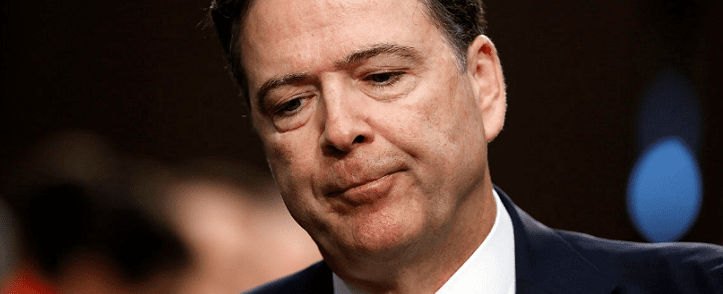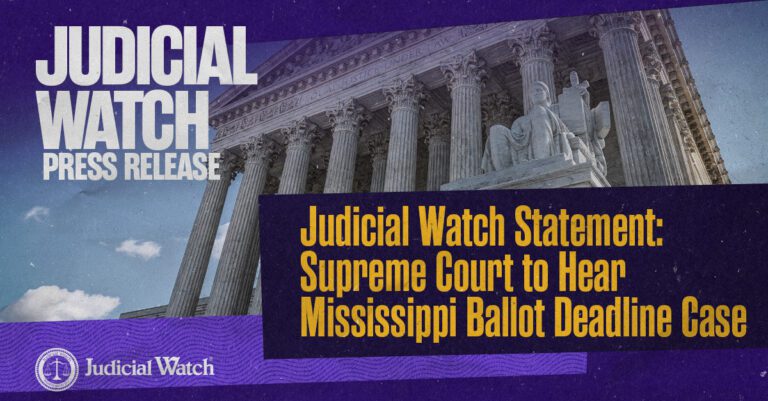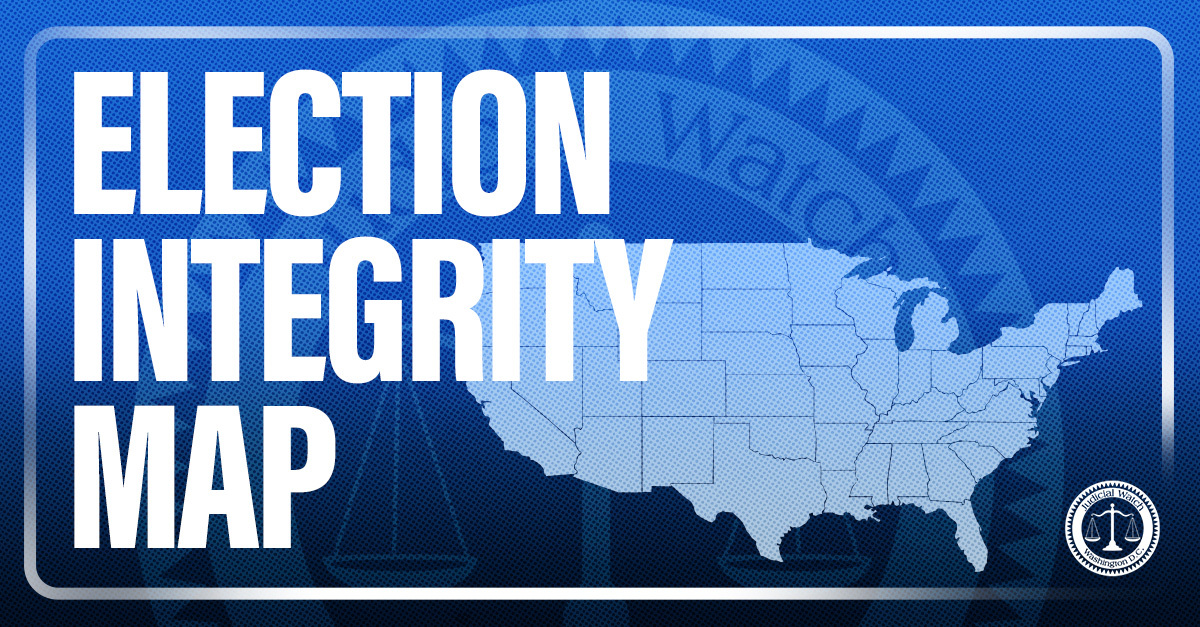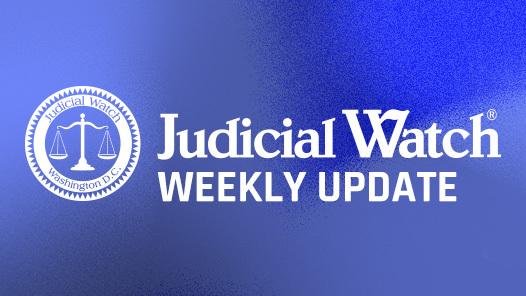
Judicial Watch Sues DOJ for Comey-Mueller Communications

Fired FBI Director Comey stated that he provided memos of his conversations with President Trump to Special Counsel Mueller and his team.
(Washington, DC) Judicial Watch announced today that it filed a Freedom of Information Act (FOIA) lawsuit against the Justice Department for all records of communications relating to former FBI Director James Comey’s providing memoranda of his conversations with President Trump to Special Counsel Robert Mueller and his team. (Judicial Watch v. U.S. Department of Justice (No. 1:18-cv-00932)).
The suit was filed after the FBI informed Judicial Watch that it would neither “confirm nor deny” the existence of the materials for an August 4, 2017, FOIA request seeking:
- All records of communications between former FBI Director James Comey and Special Counsel Robert Mueller, or members of SC Mueller’s investigative committee, relating to the return of memoranda of conversations, memoranda to the file or notes regarding same generated by Comey following conversations with government officials during his tenure as FBI Director.
On January 19, 2018, the FBI provided Judicial Watch a “Glomar” response, stating that it could, “neither confirm nor deny that the specific items you seek exist or do not exist as mere acknowledgment of these items would require the FBI to confirm or refute these assumptions,” which it claims could possibly interfere with law enforcement proceedings.
Comey’s involvement with the special counsel was first revealed on June 8, 2017, when the former FBI director testified to the Senate Intelligence Committee that he leaked memos of his conversations with President Trump “because (he) thought that might prompt the appointment of a special counsel.”
On January 23, 2018, The New York Times reported that, “Mr. Comey met last year with Mr. Mueller’s investigators to answer questions about memos he wrote detailing interactions with the president that had unnerved him.”
On June 13, 2017, Politico reported that Columbia University Law professor Daniel Richman, a friend of James Comey, “turned over copies of the former FBI director’s explosive memos… to the FBI, sidestepping a request by congressional committees to deliver the materials to Capitol Hill.”
Judicial Watch currently has several other lawsuits pending that seek information regarding the “Comey memos:”
- In June 2017, Judicial Watch filed a FOIA lawsuit seeking the memorandum written by former Director James Comey memorializing his meeting and conversation with President Trump regarding the FBI’s investigation of potential Russian interference in the 2016 United States presidential election (Judicial Watch v. U.S. Department of Justice (No. 1:17-cv-01189)).
- In July 2017, Judicial Watch filed a FOIA lawsuit seeking metadata of the “Comey memos” and related records-management information (Judicial Watch, Inc., v. U.S. Department of Justice (No. 17-cv-01520));
- In August 2017, Judicial Watch filed a FOIA lawsuit seeking the handling, storage, protection, dissemination, and/or return of classified information signed by Comey (Judicial Watch v. U.S. Department of Justice (No. 1:17-cv-01624)).
- In September 2017, Judicial Watch filed a FOIA lawsuit behalf of the Daily Caller News Foundation against the U.S. Department of Justice seeking memoranda allegedly written by former FBI Director James Comey regarding his discussions with President Donald Trump and Trump’s aides (Daily Caller News Foundation v. U.S. Department Justice (No. 1:17-cv-01830)).
- In January 2018, U.S. District Judge James E. Boasberg ordered the FBI to turn over the “Comey memos” for in camera review by the court. In doing so, the court rejected arguments by the Sessions Justice Department to dismiss the lawsuits seeking the Comey information. On February 2, Boasberg ruled that the “Comey memos” would not be made public. Judicial Watch and the Daily Caller News Foundation are appealing the ruling.
- In January 2018, Judicial Watch filed a FOIA lawsuit against the Justice Department for FBI records about Comey’s book, as well as records of communications between Comey and the FBI prior to and regarding Comey’s controversial June 2017 testimony before the Senate Intelligence Committee (Judicial Watch v. U.S. Department of Justice (No. 1:18-cv-00220)).
“Did Comey improperly funnel his dishonest memos and collude with the Mueller special counsel operation as part of a vendetta against President Trump?” said Judicial Watch President Tom Fitton. “Why is the DOJ still protecting James Comey and the out-of-control Mueller operation?”
###

















